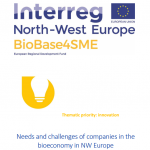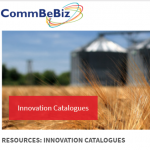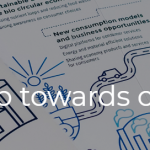Key steps to establishing a Digital Innovation Hub
ICT-BIOCHAIN has established two Digital Innovation Hubs (DIHs) focused on biomass supply-chains.
These are the first of its kind DIHs for the bio-based sector, bringing together established Model Demonstrator Regions and linking biomass suppliers and bio-industry with digital technology experts and other multi-actors (agribusinesses, entrepreneurs, academia, local authorities) to leverage the opportunities of the “digital bioeconomy”.



